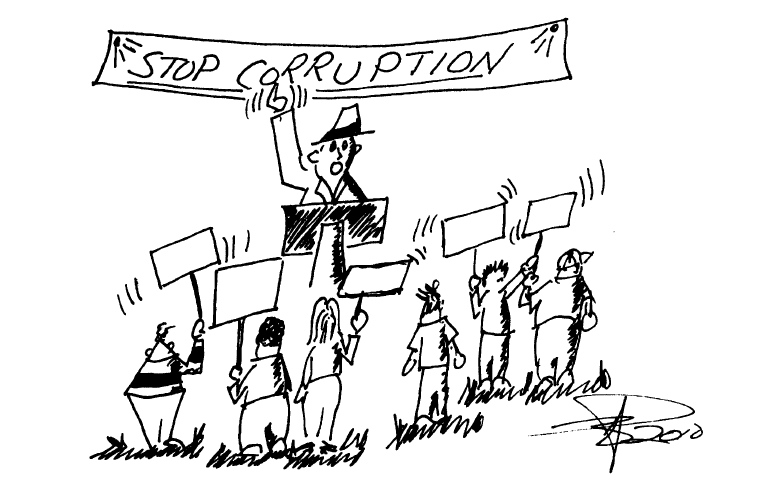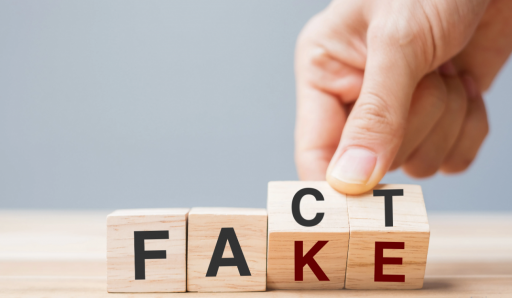What is political corruption?
According to the definition of OECD and Amundsen, if corruption is the abuse of entrusted power for the sake of private gains, then political corruption can be observed in two dimensions of the political process: during the process of electing politicians and during the process of creating policies. The most serious type of corruption in terms of its consequences is political corruption. Political corruption can be defined as the use of power by government officials for the purpose of illegal personal gain. It is high-level corruption present among high-ranking state officials and represents the abuse of entrusted power for private purposes in order to achieve illegal and illegitimate goals. Political corruption occurs at the highest level of government and involves elected decision-makers and top-level officials. Political corruption is characteristic of every political system and unfortunately not one is immune to it.
Through political corruption, the elites can distort the public interest and make a minority benefit. Political corruption serves precisely for the minority (interest group) to bypass the public interest and achieve a socially better position through political corruption. This position later allows them to strengthen and maintain their position and power. It could be said that political corruption encourages social differences when it allows a minority to achieve the greatest benefit in the community. There is a difference between political corruption and influence peddling. If corruption is directly related to the duties performed by that official, then it is political corruption, otherwise it is trading in influence.
Problems that political corruption brings with it
Political corruption carries with it great dangers. Electoral corruption, for example, can lead to major unrest and delegitimization of the political process. According to Heywood it poses a great danger for democracy, and even according to the author, it represents a greater danger in democracies than in other forms of political systems. The reason is because it undermines fundamental democratic principles, and above all the principle of equal treatment of the state towards citizens, and the principle of responsible exercise of power. Equal treatment implies equal access of citizens to the market, employment and public services, while the responsible exercise of power presupposes that politicians must be exposed to re-elections and feel insecure about their future.
However, the feeling of insecurity should not be too pronounced, because it can lead to the "paradox of security" as stated by Rose-Aikerman. As Stevović concludes, the overly secure position of politicians increases corrupt activities, but a too insecure political position can lead to the same result. Therefore, it is clear that corruption manifests itself in different forms in different countries. According to Stevović, the manifestation of corruption in the country depends on economic, political, social, historical, moral, cultural and other conditions.
One of the important problems that lead to political corruption is money. Money is important for political competition, but it can also lead to significant problems in democratic systems, especially because it can lead to a small number of donors subsequently having significant influence in policy formulation. Therefore, it is important that there is transparency in the control of money spending and use during the campaign, in order to prevent or detect potential corrupt practices. Corruption related to organized crime erodes the fundamental institutions, processes and outcomes of democratic governance. These institutions include political parties, elections, public service delivery and local democracy. In an attempt to curb these trends, 66 per cent of countries have adopted bans or limits on anonymous donations to parties, and more than 50 per cent have done so for candidates.
How to fight against political corruption in Serbia?
There are ways that the state and society can fight against political corruption. These are the Code of conduct, the formation of Anticoruption Agency, the adoption of strategies and the Law to fight against corruption, increasing independence in the work of the judicial system, and finally, the most important part is the implementation of all of the above.
Codes of conduct as a tool for preventing corruption is used by the central authorities in Serbia since 2020. There is a Code of Conduct for Civil Servants that contains anti-corruption provisions, although there is no information available about its implementation. The formation of a special institution that would deal with the issue of corruption certainly contributes additionally in this fight, and it is important to ensure independence and efficiency in its work. Judiciary is an important segment, because actually everything that the agency undertakes in the fight against corruption, the judicial system should carry out to the end. Serbia is no exception. Corruption is a problem that Serbia also faces, including political corruption.
Citizens have recognized corruption as one of the biggest problems and Serbia has taken steps in the direction of the fight against corruption, including political corruption. These efforts were also recognized by the GRECO organization in its latest report. In the last few years, Serbia has made a number of positive steps in establishing a legal and institutional framework for the fight against corruption. The legislation adopted in recent years brings greater control in the area of public procurement, conflict of interest, financing of political parties and increased capacity among the agencies responsible for investigating and prosecuting corruption acording to US State Department from 2013. The Anti-Corruption Agency has initiated a public anti-corruption awareness campaign, the authorities' integrity plans, increased training and education activities, and is applying corruption risk analysis to draft legislation.
The Code of Conduct for Members of Parliament was adopted in the 2020 and changes adopted in 2021. There were attempts to pass it in previous years, but there was always obstruction from the opposition to pass it. Today this code is in force. The code of conduct that was adopted in December 2020 was amended in 2021 because it was suggested by experts from the Group of States for the fight against corruption (GRECO) and from the OSCE, and they refer to the part dedicated to the Ethics Commission. The changes are made in the composition of the committee and the procedure for proposing candidates. The commission consists of three full-time university professors, and two members will be representatives of the National Assembly service. The amendment proposal states that the commission will have the right to express its opinion on the violation of the code, and although this will not be binding for the competent committee, the opinion of the Ethics Commission will be published on the website. The new changes introduced a fine for MPs who receive a reprimand or a public reprimand for violating the Code.
Codes of conduct are more common at the local government level, where they have been in place in the majority of municipalities since 2004. The Code of Conduct for Local Government Officials was adopted in 2004. It applies to a wide circle of officials defined as “local government officials”. That means, all elected, nominated or appointed representatives in municipality or town authorities, as well as public enterprises, institutions and other organisations founded by the municipalities and towns. The code sets out basic principles and standards of expected behaviour and provides guidance to a local official covering the period from electoral campaign throughout his/her mandate. As an act of self-regulation, the code requires its subjects to familiarise themselves with its provisions and declare in writing that he/she shall comply with it. The code also envisages establishing a monitoring body with a task to follow-up on the code’s implementations.
The recommendation on prevention of corruption has been further implemented, and the Council of Europe’s Group of States against Corruption (GRECO) concluded in March 2022 that the adoption of amendments to the Law on prevention of corruption had addressed the previously identified shortcomings and was sufficient to strengthen the framework aimed at preventing and combating conflicts of interest of members of Parliament, judges and prosecutors. Serbia has still to prepare a new anti-corruption strategy and action plan, and establish an effective coordination mechanism to operationalise prevention and repression policy goals and thoroughly address corruption. The number of indictments and first-instance convictions in high-level corruption cases has increased slightly. Serbia should further step up the prevention and repression of corruption. In particular, it should increase the final confiscation of assets linked to these cases. Those sectors most vulnerable to corruption require targeted risk assessments and dedicated action. GRECO calls for a public strategy on corruption prevention that covers explicitly persons with top executive functions. Moreover, integrity standards corresponding to top executive functions should be collected in a code of conduct, accompanied by practical guidance and sanctions in case of violation. Systematic and regular briefings and training should be organised for top officials on these standards.
Serbia has also taken important steps in the direction of increasing independence in the work of the Judiciary. With the amendments to the Constitutional Amendments to the judiciary, and later in 2023, the passing of the Law on the Selection of Judges, which was completely transferred to the profession, the national council, the majority of which is elected by the profession, and a smaller part by the parliament, is a step towards making the judiciary independent in its work. The trial period of judges' work has been abolished, which contributed to increasing independence in their work.
Instead of a conclusion
In addition to all the listed elements, in the end, the conclusion is imposed, that no law or strategy can produce anti-corruption effects, if there is no cultural pattern in a society that would make it possible. It is precisely the field of moral values where preventive policy should have the greatest impact. It seems that the most important role of preventive policies and mechanisms to deter corruption is to create a value system in a society that will place honesty and work on a pedestal. Today, in the 21st century, the media may have a decisive influence in this, and it is necessary to re-emphasise their role, not only when it comes to corruption, but also every social phenomenon. An important factor in the weakening of the anti-corruption value system is the corruption committed by the "elite" of a society, since such a social layer is considered to be the one that establishes the rules of behavior, and "...many ordinary people will believe that it is not worthwhile to be honest, while justifying their corruption by the corruption of the elite." The cultural pattern and system of moral values and principles are created and socially accepted social needs, which many see as the main trigger for committing criminal and deviant actions, which corruption certainly is.







